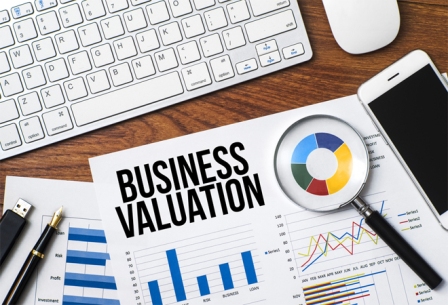When you are looking forward to starting your own small business, you will have to familiarize yourself with a lot of new ideas. One of the important concepts that every business owner must be aware of is business valuation. So, what is business valuation, what is its importance and how do you do the valuation of a business? Read on to know.
Business Valuation
As the name clearly suggests, business valuation is the act of finding the value of your business in the market. It is just like finding the value of a house when you are about to sell it. You can use multiple methods to find the value of your business. However, it is always in your best interest that you hire a professional valuator to do it for you. They know multiple methods of valuation and will make sure that the final valuation is error-free.
The Importance of Business Valuation
The first thing you should know is that it is imperative to do the valuation of your business not for one but many reasons. The first reason that comes to mind is the selling of a business. When you want to sell your business to someone, you have to set a price for it. Sometimes, the owner of a business would want to plan succession i.e. the transferring of shares to an heir. The buy sell-agreement that they use for transferring the shares to their heirs requires them to know the value of the business.
If you have ever pitched your business to an investor, you must be aware of the fact that they always ask for business valuation. They are trying to assess a few different things based on the valuation you give them. First, they want to know how much their investment is worth. Secondly, they want to know whether or not you are fair with your investment demand if you are offering them equity for their contribution.
The Three Business Valuation Methods
Even though there are other business valuation methods as well, you will be reading about the three most common ones.
1. Valuation Based on Market Value
You also call this method the relative valuation method. It is a fairly straightforward way of knowing how much your business is worth. The valuators have to look at other businesses in the market that are similar to yours. They look at their selling prices and determine the value of your business based on those prices. Now, as simple and plain as this method sounds, it does not always work. For example, you don’t find the records of sole proprietorships that easily. So, when it comes to the valuation of a sole proprietorship business, finding records of similar businesses can pose quite a challenge.
2. Valuation Based on Business Future Earning Potential
This is an ingenious way to know the value of a business and one that helps you a great deal when it comes to obtaining investments from interested investors. This is quite a realistic approach but pitching it to investors can be a daring task.
First, you have to make sure that you have done proper calculations based on your current and past records to come up with the future earning potential of the business.
Secondly, you have to stand confidently with your decision because investors would often question you and your integrity a lot when they deem that you have valued your business much higher than you should have.
Capitalization of past earning is quite a frequently used approach to do this type of valuation wherein you look into the past financial reports of your business, smooth out any extraordinary earnings or expenses, and find the product of the normalized cash flow with a number referred to as capitalizing factor. It is not the only method used for determining the value of the business under this category. Another frequently used method is based on discounted future earnings.
3. Valuation Based on Assets
It is clear from the name that in this type of valuation you find the worth of the business based on the assets it owns. Once again, there are multiple ways to approach this valuation too. A common way to do this type of valuation takes liquidation of the business into account i.e. calculate how much money you would have if you sold every asset that your business owns and then subtract every liability from that sum. The other way is based on the ongoing status of the business wherein you look at the total value of your assets on the balance sheet and subtract your existing liabilities from them.
Once again, it is the sole proprietorship that poses challenges when it comes to doing the valuation of a business using this approach. Why the valuation of sole proprietorships is difficult using this method is because the owner in this case does not use the assets for business purposes only but personal as well.
You now know from the information given above that it is imperative for you to complete the valuation of your business. Whether it is for legal purposes or to sell your company at the right price, knowing the right value of your business is crucial. In the end, you should prepare your business financial documents regularly to help you find its value with convenience.
Who we are: Funded.com is a platform that is A+ BBB rated over 10+ years. Access our network of Investors, get instantly matched with a Lender, or get a business plan by visiting us Funded.com
You can review our featured partners to help your success with your business or project.





 Rss Feed
Rss Feed


